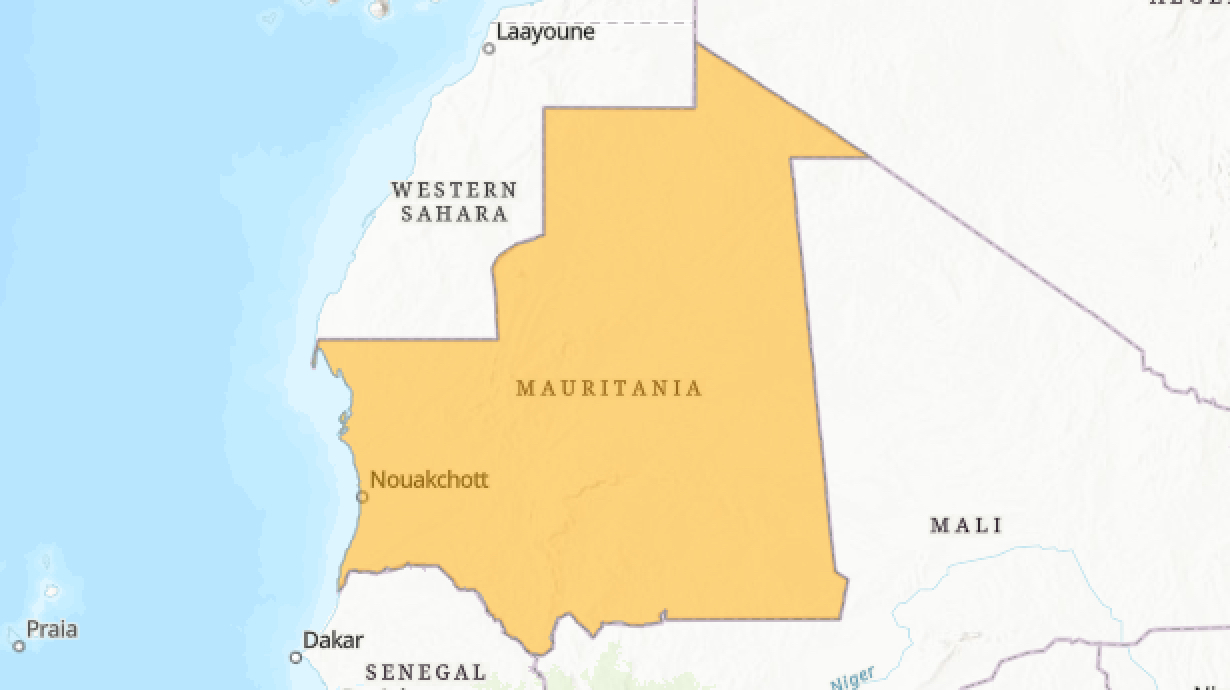Mauritania, like other countries in the Sahel region, has been affected in recent years by political instability, conflicts in neighbouring countries (such as Mali), non-state armed groups operating across borders, and the diversion and trafficking of small arms and ammunition from national military stockpiles (mainly from Mali and Senegal).1 Ammunition obtained during the Western Sahara War and arms received in 1990 make up the majority of its ammunition stockpiles.2 Currently, the number of surplus ammunition is not clear.
The Mines Advisory Group (MAG), the Small Arms Survey, Handicap International, NATO and the GICHD have been working on the ground to support the through-life management of ammunition, in collaboration with the Ministry of Defence of Mauritania. Efforts have included providing equipment (such as forklifts and pallets) and physical security and stockpile management toolkits, and building ammunition and explosive storage areas. Furthermore, actors have conducted assessments on ammunition management, provided weapons and ammunition management training for police forces and organised awareness-raising workshops on ammunition-related risks.3
1 Fiona Mangan and Matthias Nowak, “Key Arms-Trafficking Routes and Flow Patterns - Mali,” in Small Arms Survey, The West Africa–Sahel Connection: Mapping Cross-Border Arms Trafficking (Geneva: Small Arms Survey, 2019), 6-7.
2 Stéphanie Pézard and Anne-Kathrin Glatz, Arms in and around Mauritania: National and Regional Security Implications (Geneva: Small Arms Survey, 2010), https://www.smallarmssurvey.org/sites/default/files/resources/SAS-OP24-Mauritania-EN.pdf.
3 “Ammunition Management Activity Platform (A-MAP),” GICHD, 2022, https://a-map.gichd.org.
Launch the country dashboard
Further information
Accidental explosions
Since the Small Arms Survey began collecting data in 1979, three accidental explosions have been reported in Mauritania.
Table 1. Accidental explosions in Mauritania (1979–2021)
| Year | Location | Owner/manager | Deaths | Injuries |
| 2018 | Kaédi | State (military) | 0 | 0 |
| 2016 | Ould Yenje | State (military) | 0 | 0 |
| 2014 | Nema | State (military) | 0 | 0 |
Source: “Unplanned Explosions at Munitions Sites (UEMS) Database,” Small Arms Survey, updated December 15, 2021, https://smallarmssurvey.org/database/unplanned-explosions-munitions-sites-uems.
Cases of diversion
Insufficient information on cases of diversion in Mauritania.
Disposal
Handicap International, in partnership with the NATO Partnership for Peace Trust Fund for Mauritania, destroyed approximately 1,780 tonnes of ammunition of all calibres between 2011 and 2012.
Source: Philippe Houliat, “Surplus SA/LW Destruction Project in Mauritania,” Handicap International, 2014, commons.lib.jmu.edu/cgi/viewcontent.cgi.
Needs
To further enhance safe and secure ammunition management, the following needs have been identified for Mauritania:
- Development or refinement of standards and procedures on stockpile management;
- Capacity development for the destruction of surplus stockpiles; and
- Assessing the situation of conventional arms and ammunition stockpiles under the responsibility of the Ministry of Defence.
Source: Mauritania, National Report on the Implementation of the Programme of Action on Small Arms and Light Weapons (PoA) and the International Tracing Instrument (ITI) (New York: Permanent Mission of Mauritania to the UN, 2018), https://unoda-poa.s3.amazonaws.com/reports/MRT-French-891-SUBMITTED.pdf.



